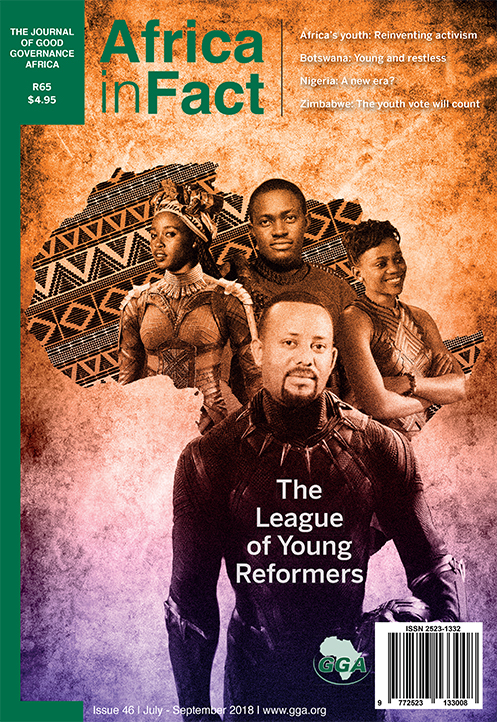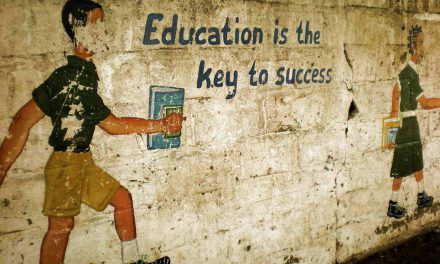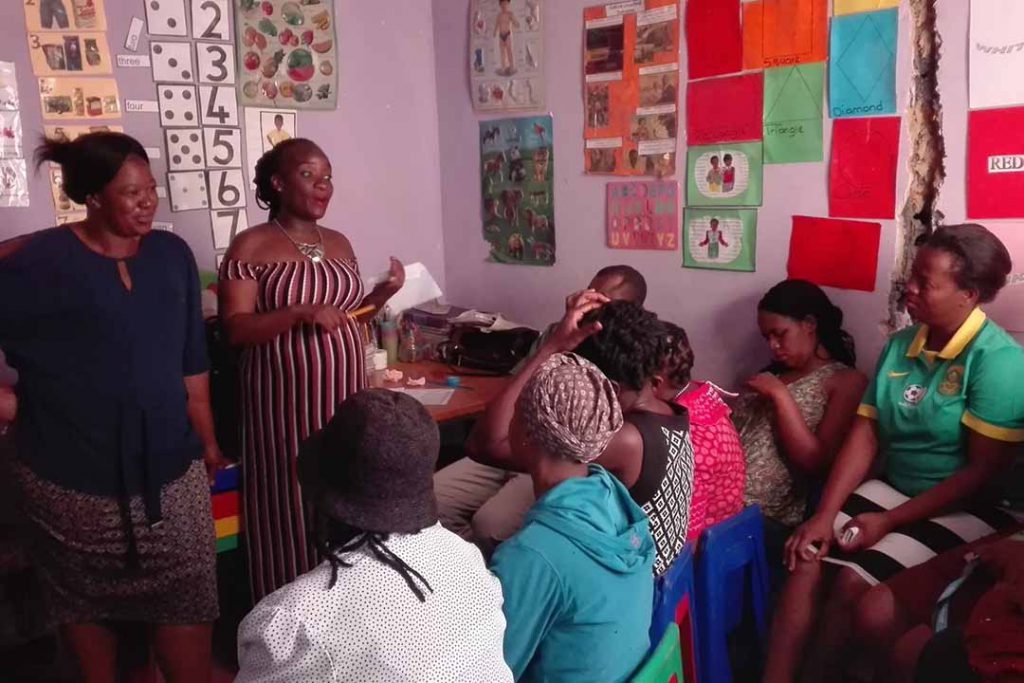
The African continent has made great strides towards achieving its development goals and protecting children and youth over the years. International development agencies such as the United Nations Children’s Emergency Fund (UNICEF) have reported a decline in child marriages, more children and youth, including young girls, are reported to be attending school, and there is also a decline in child mortality, with many countries in the region witnessing increased and improved access to basic healthcare.
However, even with these developments, much effort is still required if Africa is to achieve its development aspirations as set out in the Agenda 2063 development plan framework.
Violence, poverty, social inequality, a poor education system, the HIV epidemic, and an erosion of traditional families are some of the issues that continue to create a challenging environment for development in Africa, with young people often being the hardest hit by these.
Good Governance Africa (GGA) is committed to improving the lives of all citizens throughout Africa. In an effort to promote and support good governance, and respond to the development challenges that affect young people in Africa, GGA recently initiated a core programme that focuses on child development and youth formation (CDAYFP).
Our view is that the values learned and established during early child development (ECD) can be crucial to their later understanding of the ideas involved in good governance and practice. We also acknowledge that the challenges that affect children and youth in the region can easily lead to them being “socialised” into depersonalisation and violence.
The adoption of negative habits such as the abuse of substances, if not addressed at an early stage, ultimately lead to greater societal obstacles to development and governance.
The primary aim of the programme is to contribute, in a humble and meaningful way, to the development of a culture of confidence, self-reliance and accountability among African children and youth. Our Child Development and Youth Formation Programme is primarily intended for children and youth, but also includes activities that engage and benefit adults. The programme comprises five phases to coincide with developmental stages:
The foundation phase (0-3-year-old children and extended families, for example, parents, grandparents, older siblings, relatives);
• The personhood phase (3-6-year-old children, teachers and childminders);
• The community phase (6-12-year-olds and broader societal structures represented by school and community leaders);
• The leadership and innovation phase (harnessing the leadership and innovation skill set of children between the ages of 12-15 with a focus on mentors); and
• The society and governance phase (specialised support to children between the ages of 15-18 with broader adult participation via government, private sector and civil society representatives).
All these phases are tailored at enhancing children’s leadership, life and innovative skills. Our intervention programme provides integrated services, focusing on the academic, physical, and psychosocial needs of children and youth, while also ensuring that they are cared for in safe and stimulating environments, and have positive relationships with other adult groups in their lives.
While the first three phases of the programme focus on creating an enabling environment for children to grow and learn in, the last two phases are intended to expose young people to broader societal issues and afford them opportunities to challenge and address these issues.
We have begun to pilot our CDAYFP with work on the ground in South Africa. The foundation phase of our intervention strategy – which focuses on Early Childhood Development (ECD), that is, on children between the ages 0-3 years and adult groups such as parents, primary caregivers, the immediate family and Early Childhood Development practitioners – was piloted last year.
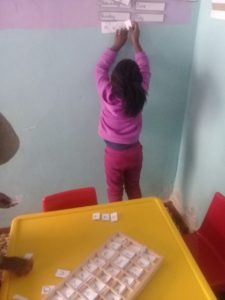 Work by the World Bank, and international treaties such as the United Nations Convention on the Rights of the Child (UNCRC), suggests that early investment in children’s lives and Early Childhood Development Education and Services (ECDES) is important for promoting children’s growth, productivity and the overall development of countries.
Work by the World Bank, and international treaties such as the United Nations Convention on the Rights of the Child (UNCRC), suggests that early investment in children’s lives and Early Childhood Development Education and Services (ECDES) is important for promoting children’s growth, productivity and the overall development of countries.
GGA has invested in two communities in South Africa through implementing three projects focusing on responding to some of the key development challenges in the Early Childhood Development (ECD) field. These three projects are; the Teacher Training Scholarship project, Support to ECD education and service centres project, and the parents and community engagement project- a project that seeks to empower adults with life skills to respond to children’s developmental and social needs.
Through our teacher-training scholarship project, GGA has provided scholarships to two young female students to train towards an international teaching qualification in the ECD field. Both with previous teaching experience in the ECD field, but with no professional training, these women were awarded an all-expenses paid scholarship to study towards a diploma programme in Assistancy to Infancy, 0-3-year-olds with the Indaba Montessori Institute (IMI) at the Sustainability Institute in Stellenbosch.
We have intentionally partnered with the IMI in an effort to make the Montessori method more accessible to those children who could benefit immensely from the approach but who typically cannot access this quality of formation on account of prohibitive costs. Our partnership is an attempt to return the legacy of Maria Montessori to the very people for whom it was first developed, namely those without resources and in disproportionate need.
As one of our trainee teacher remarks, “The study programme combines both theoretical and practical work on caring and protecting infants. I have come to learn and appreciate just how independent infants can be and how much children know and can do on their own. As adults in an infants’ life, be it as a parent, their caregiver or their teacher, besides protecting them and ensuring that their needs are met, our primary role is to assist children to achieve independence and their development milestones.” These are sentiments shared in some of the lessons the trainee teachers have learnt through the study programme.
ECD interventions are particularly beneficial to disadvantaged children, and are critical to breaking the cycle of inter-generational poverty as they uplift a child born into poverty through opportunities for education and development, and bring them closer to enjoying developmental equality with advantaged children.
Quality ECD service provision, therefore, helps to remove the affluence bias, allowing children from poorer communities to develop at the same level as children from high-income households. In our efforts towards improving the lives of all citizens in the region and redressing inequality, GGA encourages its scholarship recipients to support development work in their communities.
Our two trainee teachers, who will complete their programme in the first week of August this year, currently work with our two partner ECD centres situated in poor and marginalised communities in South Africa. The first ECD centre is located in the Mbizana municipality in the Eastern Cape.
The Eastern Cape is the poorest province in South Africa, with a large part of its population living in communities isolated from access to basic services. It is the poor quality and limited availability of ECD centres in this municipality that inspired GGA to invest in this community. Our partner ECD centre in Mbizana is Nkantolo pre-school.
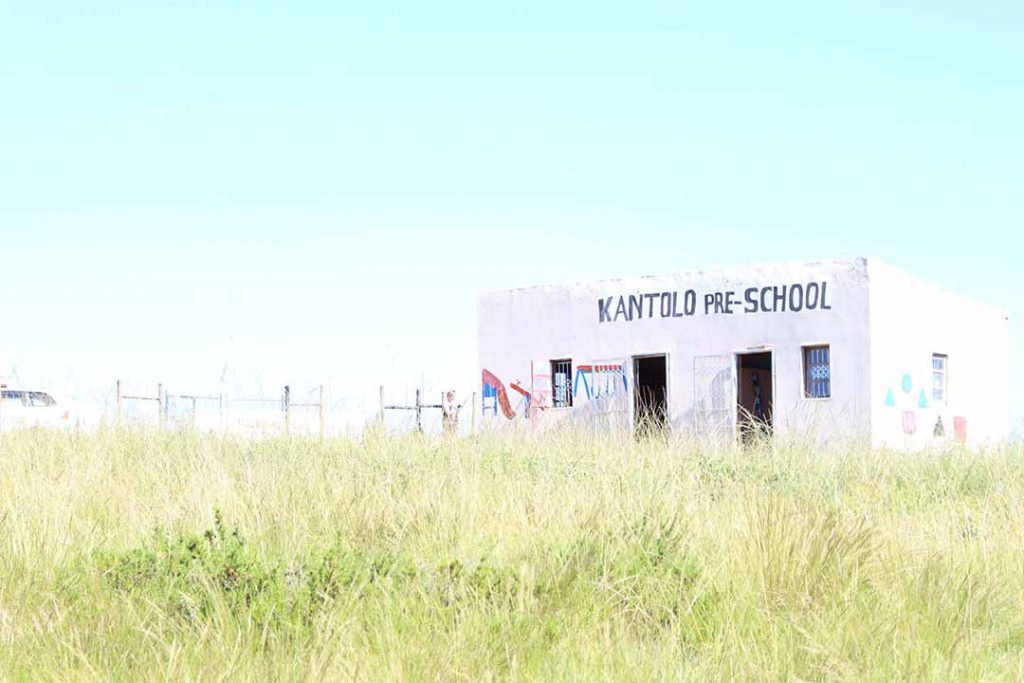
The second centre, Sibuthene day care and pre-school, is located in a peri-urban township in Ekurhuleni Metropolitan municipality in the Gauteng province. Many of the ECD centres in this municipality have poor infrastructure, with many of the teachers lacking professional teacher training, and limited psychosocial services available for learners, parents and teachers.
With their training and experience in the ECD field, the trainee teachers support the ECD centres and teachers in the daily running of the school. They also assist teachers with curriculum development and classroom management.
To date, the trainee teachers have used different strategies to implement the gains made from participating in the Assistants to Infancy programme. Through the support of GGA, the trainee teachers have been able to introduce a food-gardening project at both ECD centres, donated educational toys, and also introduced an affordable fundraising scheme at Sibuthene that includes children at the centre participating in entertaining activities for a small fee.
With many South African primary school children reported to have challenges with reading, GGA has also introduced a book club, which is aimed at introducing children to reading and listening and comprehension. This we hope will assist in establishing a culture of a reading-informed generation. In an effort to extend parent and community engagement, parents were asked to donate books to both ECD centres. External ECD centres also donated books to the project.
The trainee teachers have worked tirelessly with the teachers and parents at the partner ECD centres to ensure that, although not working under the best conditions, the children receive the best care and learning opportunities by maximising the resources that they have and working towards improving the centres.
Their efforts have been met with challenges. One of the trainee teachers who works at Sibuthene notes, “Sometimes getting parents involved and getting support from community members can be challenging, but nothing brings me more joy and contentment than knowing that I am playing a role in improving the lives of children whose development I am most passionate about.”
According to the National Integrated Policy for Early Childhood Development (South Africa), ECD centres provide comprehensive early childhood development services if they cover the following areas; child learning, nutrition, food security, communication, play, sport and culture, social protection, health and parent support.
Increased parental engagement has been key in our efforts towards achieving comprehensive ECD services even in the most marginalised communities. GGA holds educational parents’ workshops that seek to educate parents on early childhood development education and services and improve parent-child relationships.
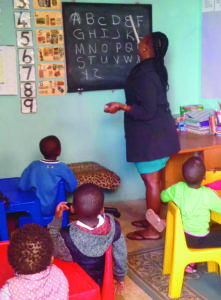
Education tools in action at the Sibuthene day care and pre-school centre Image GGA
There are numerous gains for ECD centres, parents and the child when the family or parents support ECD centres.
For children, gaining family support or parental involvement helps extend teaching outside the classroom; it creates a more positive experience for children and helps them perform better when they are at school.
Parents who are in tune with what is happening in their child’s pre-school classroom or childcare centre are better able to establish a connection between what is learned at school and what takes place in the home. This connection is a key component of a child’s development and in supporting further learning.
Parents can support ECD centres in various ways. Until now, GGA’s primary focus has been to raise awareness among parents on why and how they can support the ECD centres their chidren attend.
Our social worker has had two engagements with parents this year to help empower parents with the knowledge and skills they will need to better support their children and the ECD centres caring for their children.
UNICEF, and a study by KPMG for the South African government Department of Social Development in 2016, report many developmental and infrastructural challenges with ECD centres in the country and throughout the African region.
The environment in which children learn and are cared for plays a significant role in their development. Although the South African government has a system in place that funds ECD centres to cover nutrition, there is no identifiable government programme for financing and building new centres, upgrading and maintaining existing ones, and improving access to properly built and equipped centres. In order to upgrade and maintain their centres, ECD centres have to rely on private donations and contributions from parents to upgrade and maintain their premises.
GGA believes that a strong commitment to building equipped centres is necessary to support high levels of quality early care and education programmes. While we have received positive feedback on the academic and psychosocial support that we are providing to Nkantola pre-school and Sibuthene, the poor condition of the facilities at both pose a serious threat to our intervention efforts.
This is why we have initiated a project to redesign both centres. With the help of international funders, our in-house designer/ architect will be responsible for developing ideal ECD centre structures as per the policy requirements of the Department of Social Development.
Monitoring and evaluation are also key to our implementation process. To assist with the development of assessment materials and improve the feedback loop, which has been identified as an element of growth for the Montessori approach, we have developed a baseline assessment with Key Performance Areas (KPAs) as viewed variously by children, teachers, parents and the community. Prior to partnering with Sibuthene and Nkantolo, GGA conducted a baseline study to establish the current status of both centres.
The baseline assessment included a situational analysis of the conditions and lived experiences in the communities in which the centres are situated. Our KPAs were used to assist in developing the baseline tools to interview parents, ECD centre teachers, and external community members.
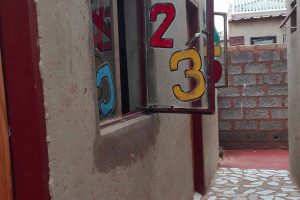
Education tools in action at the Sibuthene day care and pre-school centre Photo: GGA
Furthermore this year, as part of the monitoring process, GGA conducted an assessment to monitor our progress towards meeting our programme objectives and to assess if we are effectively meeting our KPAs as set out in 2017. This was done by conducting semi-structured interviews with teachers and parents and a focus group at both ECD centres.
Parents reported to notice increased positive sense of self in their children and an increased interest in the learning process. There were also noticeable changes with the centres, which now have more learning tools, which on-site teachers reported to be very helpful during the teaching process.
With the recent appointment of a community liaison officer, who has extensive experience as a researcher and educator, the community in Mbizana will also be actively engaged through workshops and community development campaigns.
These will ensure that both the Ekurhuleni and Mbizana communities are active agents in the development process of creating model ECD centres, even in the most mariginalised and poor communities. This will in turn, ultimately create environments both in ECD centres and homes that are conducive to the optimal development of children.
Our wish is to extend our work and reach more children and communities in South Africa and other African countries in the future. Over the next three years, the programme will focus on optimising the development of children between the ages of 0-12 years old.
These phases will focus on promoting child development and strengthening the relationship between children, parents, community leaders and schools. In collaboration with our partners and with support from our funders, we also hope to fund several more engaged young people towards educational qualifications in the child and youth development field.
These young people, together with the current trainee teachers, lead social worker and community liaison officer, will assist GGA actively move towards engaging children and youth who are confident in themselves, their future, and their role in developing wholesome and holistic communities.
Zama Mboyisa is a registered social worker with a Master of Arts degree in Social Development from the University of the Witwatersrand. She was the programme lead for the GGA’s Child Development and Youth Formation Programme and is passionate about child and youth development. Zama has experience working in the immigration, child protection, public health, and education sector.



